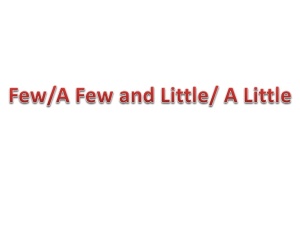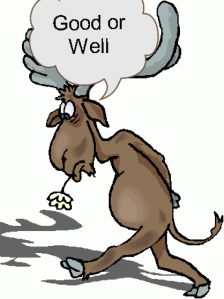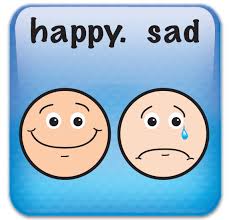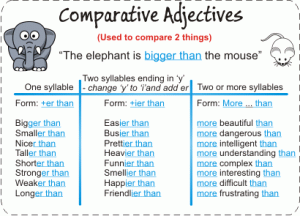There are few apples in the basket.
We have little hope of success.
Without articles, few and little have a rather negative meaning: not much / many.
In the above examples:
There are few apples in the basket = There are not many apples
We have little hope of success= There is not much hope.
On the other hand, a few and a little (with the article) have a positive meaning: there is not much or many, but at least there is something!, which is better than nothing.
In the example:
We don´t need to go shopping: there’s a little milk in the fridge and a few apples and eggs. That will do for dinner.
We can notice how the use of a before little and few gives us a positive feeling.
Fewer is the comparative form of few and less is the comparative of little.
There are fewer students in my class this year.
He earns less money than me.
However, many English speakers use less with plural nouns, which is considered incorrect by many gammarians.
The superlative form of few is the fewest; the least is the superlative of little
This antidepressant has the fewest side effects.
Don’t thank me. That’s the least I could do for you.






